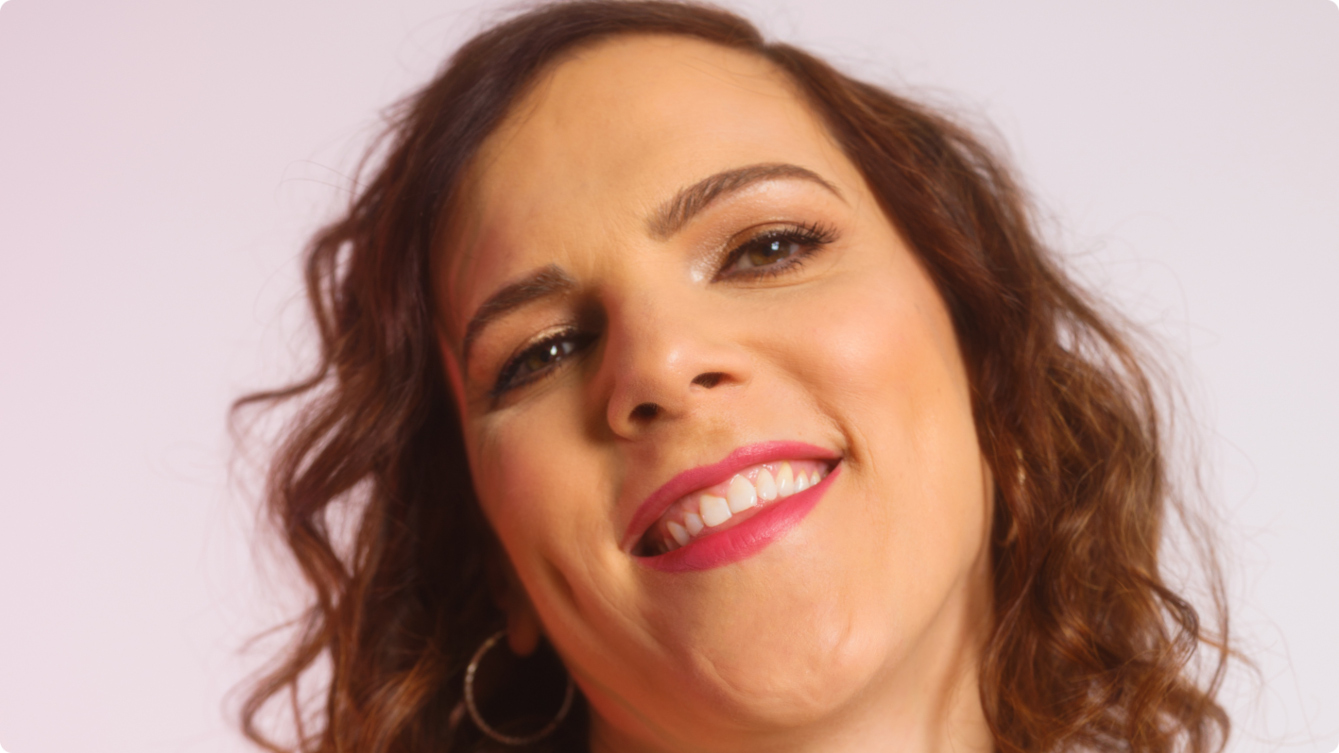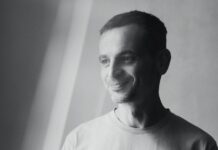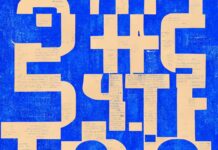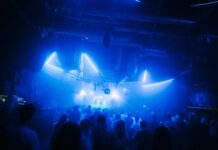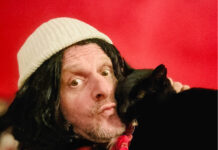Eris Drew (Foto: Desmond Picotte)
KLICKT HIER FÜR DIE DEUTSCHE VERSION DES INTERVIEWS.
With Quivering In Time, Eris Drew has produced one of the most sensational albums of 2021. We caught up with the producer, DJ and label founder last fall in her new New Hampshire home. Eris Drew talks about eight-hour sets with her partner Octo Octa, loneliness in log cabins, the worlds that lie between rave and reality — and the road movie Easy Rider, which she saw as a young raver and which reappears on the album again.
You are back in New Hampshire, in the cabin where you recorded the album which is depicted on the album cover.
I have not been here for the past eight or nine weeks, but I am back today, leaving again tomorrow. So I am full on touring again, which is wonderful (laughs) but also exhausting.
What kind of experience is it to return to clubs and festivals in the autumn of 2021, especially after such a long break?
I was nervous, but I am getting more used to it. As they say, things start to feel normal again as you are in the flow of what you are doing. It actually feels wonderful to experience music with people. For so much of my life I was a bedroom DJ, a bedroom producer, I just played in Chicago sometimes. I have always privileged that part of the experience, I don’t feel it is focused on enough, the personal relationship to music. But having absolutely no connection to venues and people and spaces and the music community except through social media during a global pandemic, that really emphasized to me how much I truly believe what kind of power is in being together and experiencing it. Not at the expense of loving music but in addition to. It’s really a wonderful thing.
How does the pandemic change the perception of the music?
I have been trying to embrace this part, the togetherness and the excitement of that. But it is still a nervous time, it’s hard to travel, you are constantly concerned for your health and the health of others. I read the news every day because I wanna be making my decisions based on facts. (laughs) It is a hard world to abrade. So it felt good, but it is also a harder time.
How do the parties and playing out feel different after the long break?
My partner Maya, Octo Octa, and I did just two b2bs at Sustain – Release and a few days later at Good Room in New York. They were seven and eight and a half hour long sets. We have been playing a lot of shows, but we both felt the whole power of the music kind of returning through these sets. The general feeling of these events was excitement because of the nervousness. The parties over the last weekend felt much more grounded, very emotional and pretty powerful for me personally. I told Maya whatever the chapter is of my life, whatever the page is, I would write something about these last two shows. We were moving forward in some way.
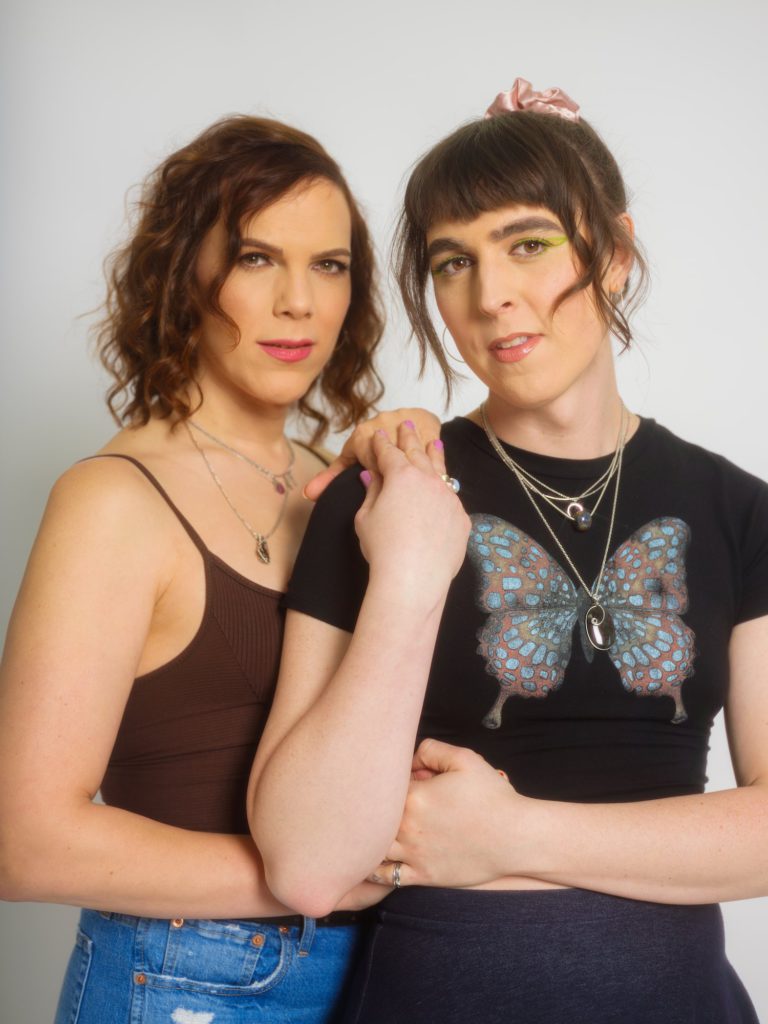
What would you write?
I experienced a mystical experience — something I call the Motherbeat and can hardly explain. Let me put it this way: I felt connected to the people I was playing it for. It was magic!
With the concept of the Motherbeat you define music as a universal healing force.
These subjective experiences we have together are so important and part of my album was about trying to bring that into my life and remember that it was something I cared about. Having these kinds of experiences with people again, these things are hard to put into words. Not at all mediated through social media but actually in person, that is pretty amazing.
Let’s talk about the album. How did you come up with the idea to do your debut album at this point in time?
Honestly that is something I wanted to do for a long time. I thought about how cool it would be to record an album and arrange it like a classic record I loved when growing up. I am 46 years old, albums were a huge part of my musical trajectory when I was young. I still listen to this day to some of the records I loved when I was a teen. For a while I wanted to do something like that. But it seemed pretty far off for two reasons. One was that I was touring extensively, so doing an album with that level of intentionality, sitting down and basically writing all the songs in a space and a time and putting them together in another space and time – you know, that sort of thing how most of the classic records were made – I did not believe that that was something possible for me. Also, I didn’t feel that I had the technical skills to produce an album on my own. I like programming drum machines and working with synthesizers, but producing an album is something else!
Why is engineering your music so important to you?
If I wanted to record an album, I wanted to engineer it myself. I am still in the process of learning how to engineer. I had an experience when I released my last EP, Fluids of Emotion. I recorded the songs and I went to a studio in Detroit and mixed it with my friend BMG who is an incredible engineer. He shared with me a lot of information and we also worked together to mix the album down. Eight days later I realized I really got to try to learn engineering. That was BMG’s purpose in bringing me in.
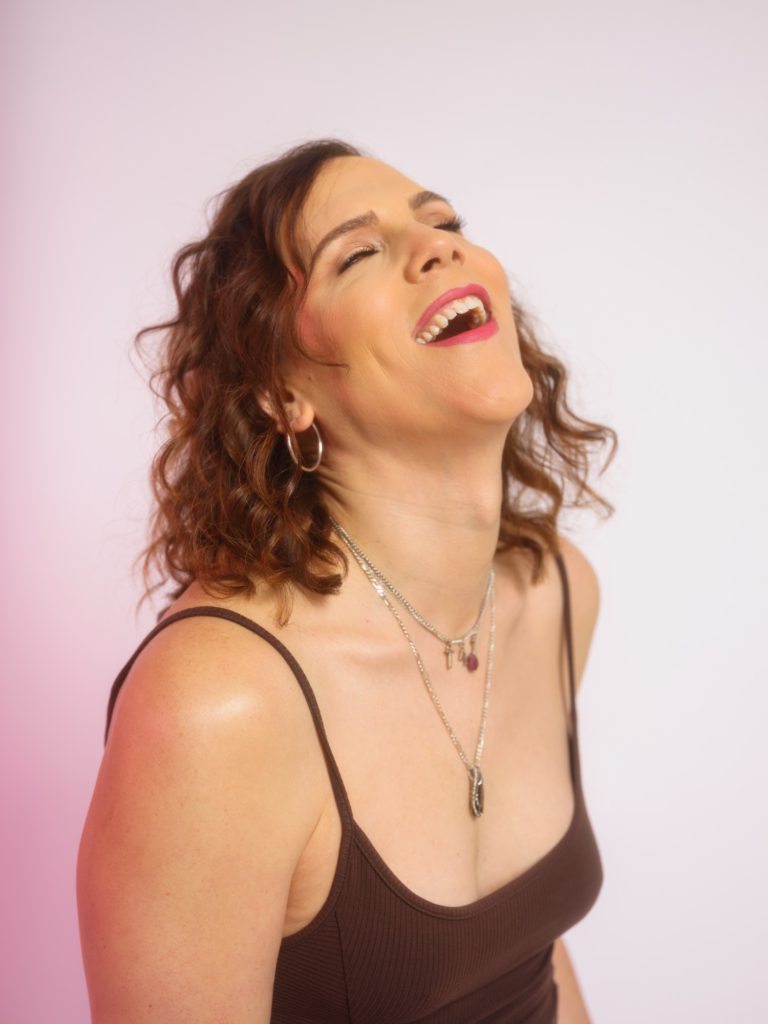
What did you learn from him?
He taught me some things like getting the bass balance right. The lockdown really gave me the space to explore that. I mixed these tracks down many times on my computer, in my studio, even on my iPhone. I listened to them with Octo Octa. I wanted them to sound really full, powerful and full of bass but also with a lot of clarity. I also recorded them to be loud on the vinyl, we wanted to release them as a double pack with a good length, the total length is 54 minutes. I wanted to make sure that these songs really translate well on vinyl because in the past I had some degree of engineering naiveté.
In what kind of sound did your engineering naiveté translate to?
I love how these songs sound and I would not want to change anything about them. But they are a little quiet on vinyl. As a DJ, I was self-conscious about that and I wanted to change it. But I also wanted to keep the gentleness of those songs and also the dynamics because it’s a reason people like them. They are very dynamic, there is a softness in them. So, I spent time during lockdown mixing these tracks over and over again, experimenting with different things and refining that.
„You do hear differently while touring.”
It is soft and subtle but also energetic and driving. I guess it is a challenge to do both at the same time.
Part of what got me into this place was not my time in Detroit but playing on so many sound systems over the last couple of years. Before, I had always played my hometown club which is Smart Bar and then I would play on smaller systems, but the kind of sound systems I played over the last years have really tuned my ears and I tune them further spending time in my studio engineering.
How does playing on a huge soundsystem refine your hearing?
You do hear differently after touring. And it’s strange because in some sense you are really putting your body to the paces and you are affecting your hearing in negative ways even if you are wearing hearing protection. It is just very loud in these environments. But at the same time your ears become more sensitive and trained. We live through our bodies and we use them and I use mine to hear better at the same time I am probably hearing worse. (laughs)
It is good to hear you take so much inspiration from touring as many DJs just seem to get exhausted. You seem to be able to take in this intense energy.
Look into how people practice spirituality in different places. To some degree, an ordeal is part of it. Human life is so comfortable and restrained and careful and safe.
Why did you compose the songs in New Hampshire? The photo of you in the cabin is just beautiful, a DJ playing to nature not to people, creating a relationship between music and nature.
Maya took that photo secretly. On it, you can see only me and the equipment — otherwise there is loneliness. She also caught me in a thoughtful moment. I was thinking about the past, the future, and seclusion. After all, I’m from Chicago, love drew me to solitude. In the meantime, though, I feel comfortable. We brought my record collection here, thousands of albums I’ve collected over the last 30 years. We also spent a lot of time in nature during the lockdown, hiking or climbing hills. Even though I was outside the normal context of techno and house, I didn’t feel that this music didn’t fit in with nature.
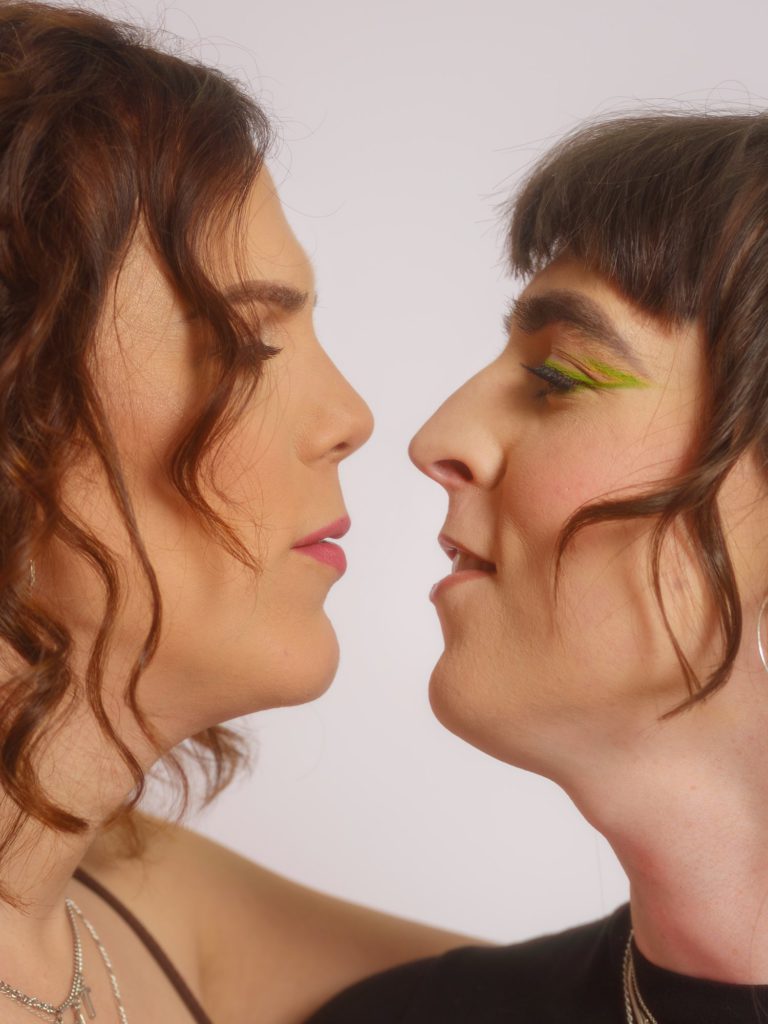
How does electronic music relate to nature?
I just realized that all the mechanical music is very much connected to nature, to the fundamental rhythms that are part of our body and part of the universe and to those oneness-moments that people describe having. I always felt about the techno that it wasn’t some futuristic idea of the Automaton, the Kraftwerk idea of a man-machine, but music for a kind of connection that people have moved away from. I think there is a lot of inspiration to be found living in nature making electronic music.
Quivering in Time has a lot of the naiveté that makes a record from 1994 unique, at the same time the album feels contemporary.
It’s naive music, yes. Listen to the progressive house from 1993 or 1994. It’s not always perfectly mixed, the arrangements are weird. But that’s the charm of those records! I also want to be chaotic and sample without being bound to classic sounds. You’ll find a lot of familiar breaks in my songs, but most of my keyboard sounds are pretty different from what you usually hear. I attribute that to my coming out as a transgender woman. At that time I was 39 and going through a second adolescence, everything felt new and exciting, at the same time I felt a gloom inside me. Maybe a young and old woman speaks from my music at the same time. Maybe that’s why I don’t think of all those records from the 90s as old. After all, I’m playing them to people who are hearing them for the first time. The past remains alive, we soak up the sounds.
„Maybe a young and old woman speaks from my music at the same time.”
In another interview you talked about the time when you discovered electronic music for the first time. You said the music felt like the most beautiful thing but at the same time you were in a very dark place. That thought resonated with me, I thought about it a lot. You can use the music in a liberating way, but also in a destructive fashion.
Absolutely. We have experiences with other people that are powerful and show possibilities that are not possible in other places in our society. It’s about people’s freedom over their bodies; their right to explore their bodies and use certain substances to do so. Having these experiences and then integrating into a society that rejects alternative identities and other experiences remains difficult. When I discovered electronic music in the early 90s, there were worlds between rave and reality.
How did you manage to integrate those two worlds?
I partied less, went to school more often, and got a decent job. A friend I partied with a lot, on the other hand, joined a religious organization and dropped out of society. The last time I talked to him, he was living on a beach in Hawaii. So you never know where your experience will take you. I ended up being shaped by the raves as well. I consumed substances in a way that harmed me. At some point I had to come out and deal with personal things. It took me a long time to get to that point.
You needed a long time to understand what you were supposed to understand.
Yeah, that’s true.
The music finally leads you to the place of beauty and happiness, the place you are supposed to be in. But some people don’t get there, they get stuck in the process, or they are ultimately a destructive personality. There is this danger, I guess.
When do we measure a person’s life? I was definitely in a destructive place at one time and some people never get out of that place. I would never want to mythologize my experience, I feel very fortunate that I am in a good place now. I don’t attribute it to a strength of character. I had many friends who were really wonderful and good people who got into really difficult places because of partying and drugs and having trouble functioning in the dominant social norm which can be hard for a lot of creative people, as well as for ethnically diverse people, black folks, queer people — it’s probably not good to list anyone as I am not able to list everyone.
We discussed your album earlier. I want to talk about the songs because they cover an unusually wide range of emotions.
Each piece is meant to be a song. But it’s hard to put them into words. I find it easier with instruments or sounds. One song is called „A Howling Wind” for a reason. I live in a log cabin and produce music there. At night it’s pitch black, the wind whips against the wooden walls. It’s like I’m making music in the belly of a guitar. (laughs)
What is the song about?
I wanted to write a song that captures both the warmth and vibrancy of the place but also the loneliness of it. That became „A Howling Wind”. I do things musicians do to create unique characters for songs, I used one synthesizer for that particular track, it’s the first synth I ever got, an old two operator FM synthesizer I bought at a toy store. It has this beautiful, simple tone, so I processed all those sounds through tremolos and saturators and in some instances sampled them and replayed them. I used this nostalgic instrument to make a song about my new home.
It sounds big and beautiful, but also a little uncanny.
The house kind of talks. It’s funny, when I used to live close to Chicago, I used to go to the forest at night and here, I get a little nervous sometimes because I am even more in nature, there are animals. I have more appreciation for the uncanniness.
„I thought it was mint spray, but it was LSD.”
What about „Ride Free”?
That was one of the first songs I wrote. At that time I was still on tour. I was playing in a club in Athens. Someone gave me a spray. I thought it was mint spray, but it was LSD. In the club there were projections of horses riding in black and white. I watched them galloping and was spellbound by them. So I wrote a melody for the horses. The emotion is in the keys galloping. Also, I always liked the soundtrack of Easy Rider. Primal Scream sampled it and made it famous. For me, samples from the movie also appear in many songs. Most of the time there’s not much left of the source material. It’s more of a fantasy with the horses, where they stand in court and talk about their right to go out, party and get drunk.
What do you mean?
It’s just a fantasy I had. A song came out of that. There’s a lot of music I make just for my own enjoyment. During the lockdown, I still kept stumbling over the piece. It triggered feelings of wanting to be together and free. I thought, „Oh God, maybe I should finish this track after all.“ My partner had fallen in love with it by that point, one of my friends even cried when she heard it.
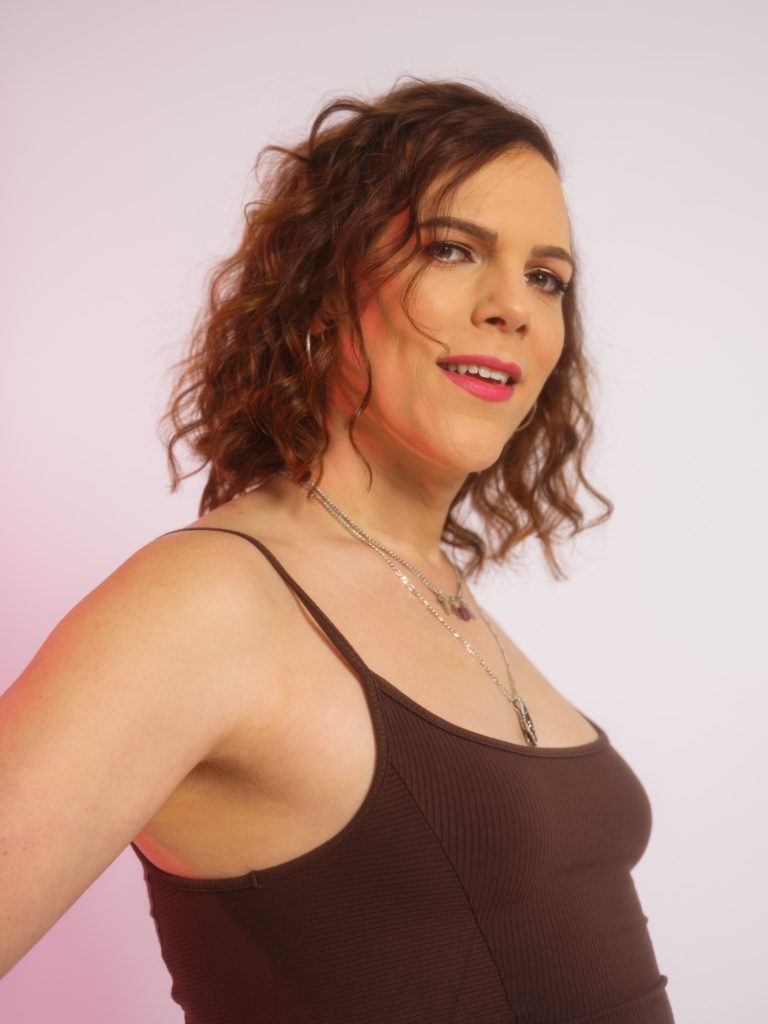
How did you finish the song?
Maya and I were in Berlin, the sun was beaming into our apartment. That’s where the glittering melody at the end of the song comes from. It resolves the feeling of the song. During the lockdown, I remembered that situation. Later, a sample from the movie Tron was added. It was from a scene that was later cut out. The female protagonist invites Tron to her place. You can see why they love each other. Anyway, I wanted to soften the horses‘ voices. Then I sampled the consciousness researcher Terence McKenna for the beginning of the piece to load the song with meaning.
I did not recognize him.
Because I altered his voice! Over the years, I’ve talked to a few people about McKenna. Most of them said: „All these guys like McKenna are blowhards.“ But I recognize something different in his person — something soft and feminine, something he hid. So I took the growl out of his voice.
McKenna fits into the era of the movie Easy Rider. You mentioned it earlier.
When I was a raver, I loved that movie. A friend and I would get stoned and watch the movie when we had nothing to do. We were suburban kids, we’d go to raves on the weekends. During the week we just hung out. Back then Easy Rider was a retro movie which was important to our parents. We watched it on videocassette. There’s a lot of great rock and roll on the soundtrack. That was my association. I used everything that reminded me of time with other people and good memories from the past. A lot of that I sampled on the album. I can’t ascribe any meaning to them other than they are sounds that make me feel a certain way.
